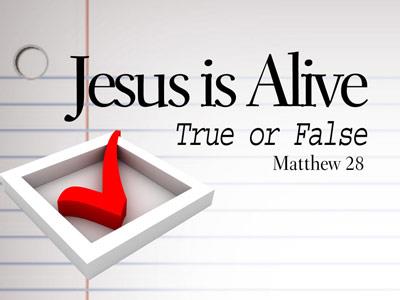-
Shaking The Foundations
Contributed by Mike Hays on Nov 28, 2017 (message contributor)
Summary: False teachers in Paul’s day were rattling the foundations of the faith, but Paul was quick to stand up for the most basic truths of Christianity.
“Shaking The Foundations”
Galatians 1:6-9
In 1521, everyone was talking about Martin Luther. The talk was centered around Luther’s stance against the religious authorities of his day. Four years earlier, Luther had nailed his now famous 95 theses to the door of the church in Wittenberg. The act had brought him attention that he had never sought. Luther was challenging the theology of the religious leader’s of his day – something nobody in their right mind would have ever dreamed of doing.
Luther debated different religious leaders on two ideas that he had drawn from his studies of Scripture. For Luther there were some things in Scripture that were nonessentials and open to interpretation, but there were also non-negotiables in Scripture that left no room for error. The two ideas were: people are saved by faith (not by human effort), and Scripture (not the church) is the test of truth.
From the perspective of the Church leadership of Martin Luther’s day, Luther was undermining their authority and they would not stand for it. As a result, Luther was “churched” by the Pope. The Pope did not stop with showing Luther the door; he declared to everyone that Luther was bound for hell. As if this were not enough, the Emperor ordered Luther, “the heretic,” to appear before his throne.
Luther jumped at the opportunity to appear before Charles V with the hopes that the Emperor would see the light and experience a conversion. Luther kept his appointment and appeared at Worms, Germany, in April 1521. As Luther walked into the room, Charles V sat with his advisers on each side of him and Spanish troops dressed in their military uniforms. Many dignitaries filled the hall that day when Martin Luther walked into the room and saw the table before him filled with books, books written by Luther.
When the stir settled, an official motioned towards Luther’s books and demanded that Luther answer two questions. He was not allowed to teach, not allowed to argue his point, not allowed to address the Emperor – only answer the questions: “Had he written the books?” Secondly, “If so, was there a part of them he would now choose to recant?”
Luther had been duped, tricked, and deceived. He thought he was going to have a chance to share what he had learned from God’s Word, but he found out that he had already been judged before he ever entered the room.
Luther’s normally booming voice was quiet as he answered, "The books are all mine, and I have written more." Luther paused for a moment before he answered the second question. Luther finally spoke up: "This touches God and his Word. This affects the salvation of souls. I beg you, give me time." Charles gave him one day.
The next evening, Luther entered the room that was packed with power brokers. Once again he was only allowed to answer the questions that were presented to him. "Will you defend these books all together, or do you wish to recant some of what you have said?" Luther, after having spent much time in prayer and seeking God’s counsel, spoke up. Luther said, “Some of the books even my opponents agree, contain edifying teaching.” Naturally, he would not retract these. Luther continued. “Other writings attack the Pope and his teaching, yet to retract them would only encourage tyranny,” Luther then admitted that some of his writings attacked individuals, and perhaps he did so too harshly. Even though his attacks were possibly too harsh he refused to retract the writings because the people he attacked defended the Pope’s rule.
One of the power brokers attacked Luther. He lambasted Luther’s arrogance in believing that an individual could call into doubt the traditions and teachings of the entire church. Finally, he asked, "You must give a simple, clear, proper answer to the question: Will you recant or not?"
In response to the attack, Luther spoke softly, but with no equivocation, no hesitation. Luther said, "Unless I can be instructed with evidence from the Holy Scriptures…. I cannot and will not recant." Luther knew the weight of the words he had spoken, he knew the consequences he could suffer, and yet he spoke one final time -- "Here I stand. I can do no other. God help me. Amen."
Martin Luther was not trying to make a name for himself. Luther knew that there were pillars of the Christian faith, and if for some reason these pillars were compromised, then the very foundation would be shaken. What is it that leads a person to take a stand against civil and religious authorities, knowing full well that their popularity with the powerful will take a nosedive? What is it that empowers someone to risk it all for the sake of matters of doctrine?

 Sermon Central
Sermon Central



